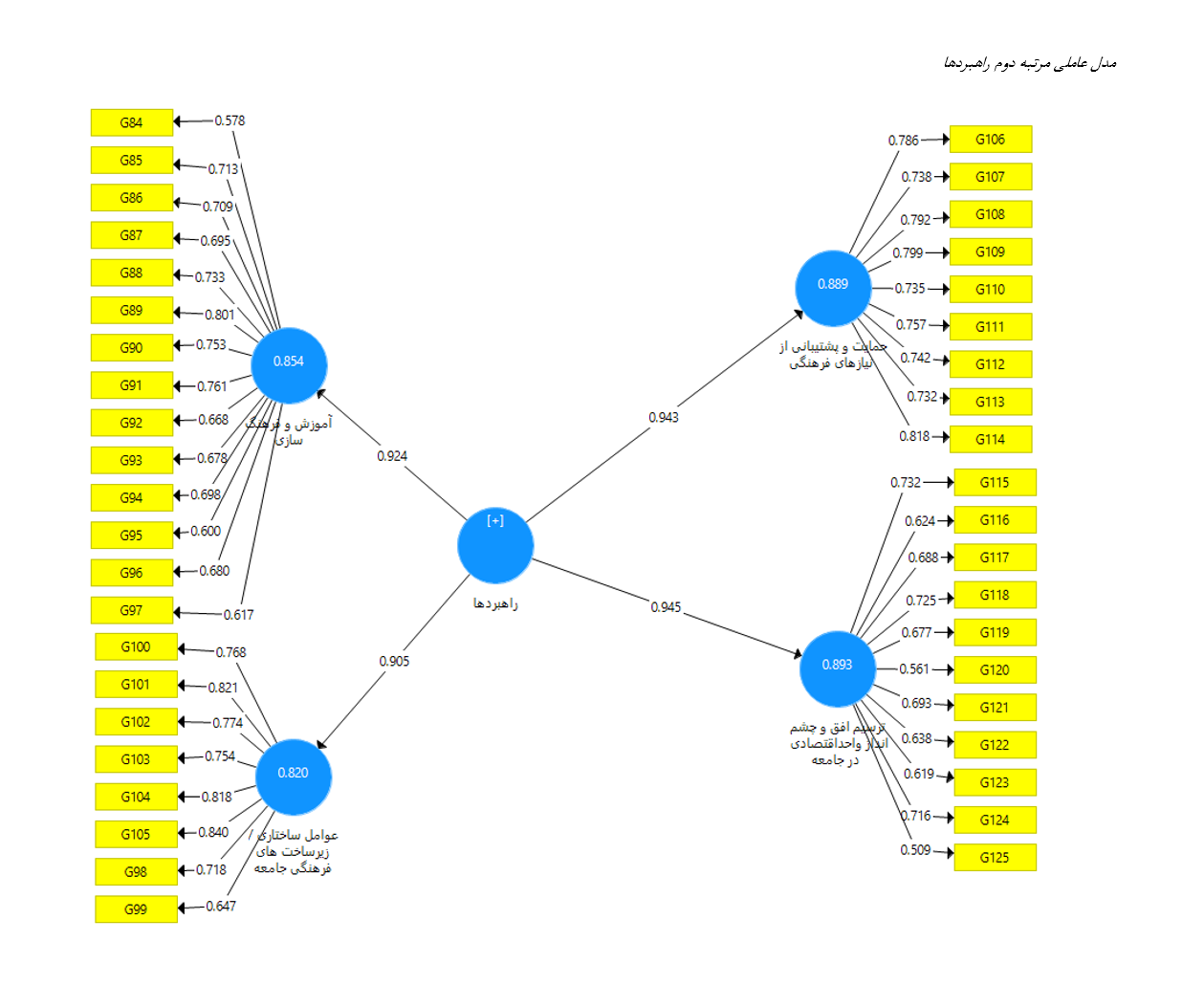Validation of the Family Economic Efficiency Model with a Cultural Approach, Emphasizing the Iranian-Islamic Lifestyle
Keywords:
economy, culture, family, lifestyle, Iranian-IslamicAbstract
The aim of this study is to validate the family economic efficiency model with a cultural approach, emphasizing the Iranian-Islamic lifestyle. This research is applied, and its approach is quantitative. The statistical population of the research in the quantitative section consisted of 135 individuals, from which a sample size of 100 people was selected using the Morgan table. The data collection tool in this section was a researcher-made questionnaire, which included the components identified in the conceptual model of Fakhari et al. (2023). To ensure the validity of the questionnaire, its face validity was confirmed by the supervisor and a number of members of the statistical community, including university professors. Its content validity was also confirmed by the supervisor. The reliability of the questionnaire was confirmed with a Cronbach’s alpha coefficient of 0.8. To validate the model derived from the identified information, a structural equation modeling approach based on variance was used. The results showed that the identified factors were categorized into five main concepts: causal conditions, intervening factors, contextual factors, outcomes, and strategies (with different sub-concepts).
Downloads








